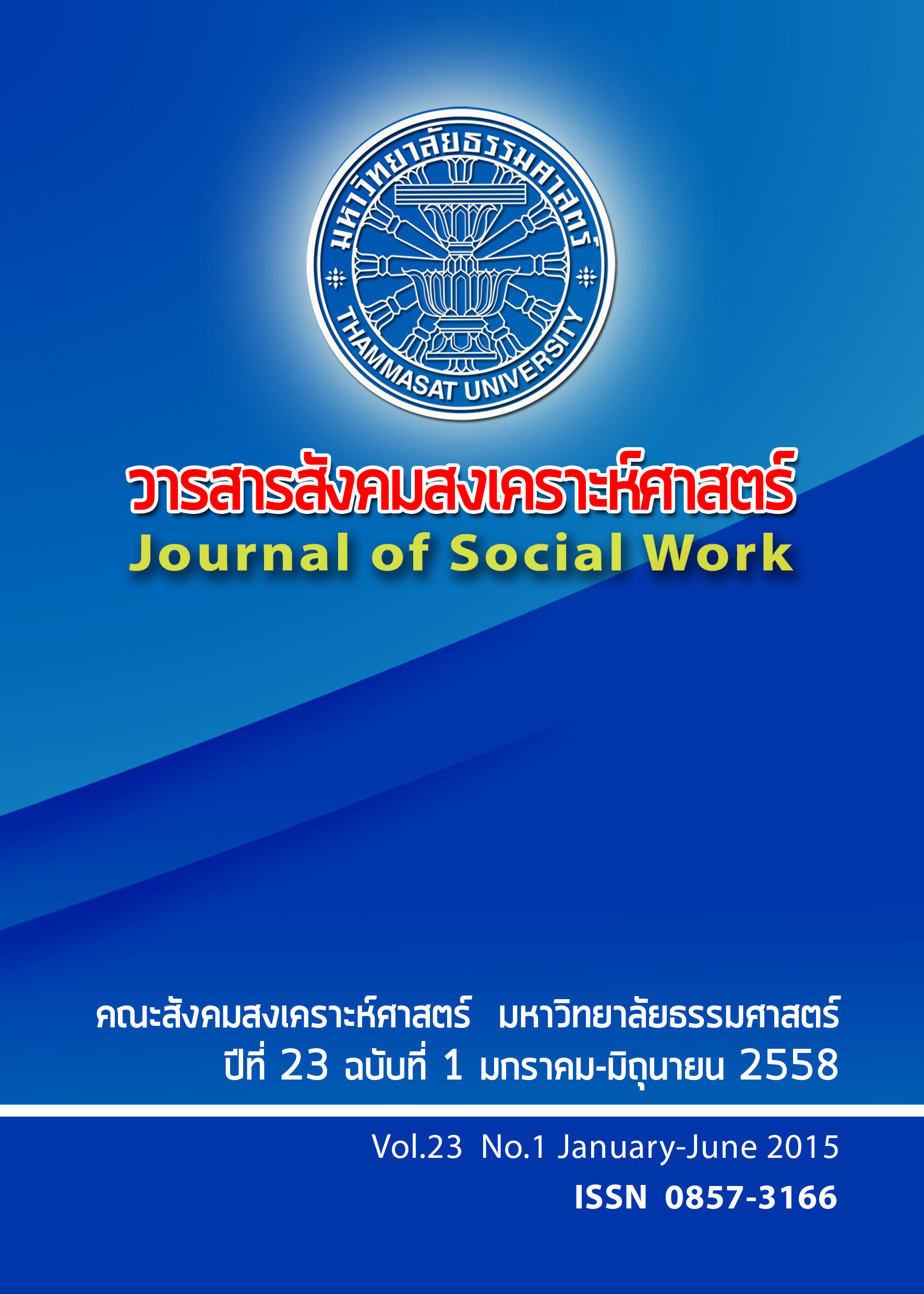Sexual Literacy of Adolescent in Thai Society
Keywords:
sexual literacy, adolescent, sexual education, adversity, resilienceAbstract
This research aimed to find meaning of sexual literacy, to describe the characteristics person on sexual literacy and proposed the guidelines to develop the enhancement of sexual literacy. This research was used qualitative research method. The researcher collected data by the documents study, structured interview for in-depth interview. Key informants were divided into two group: 1) people with knowledge specialization and the operation involved adolescents 2) adolescents. The data were analyzed by content analysis and analytic induction.
The results showed that sexual literacy means perceiving and understanding yourself and others about physical, mental and emotional changes naturally, accepting sexual diversity and sexual relationships, proper learning about sex, selecting appropriate sexual media and information from various sources with judgment, promoting sexual healthcare behavior, preventing from risks of unsafe sex, having self-esteem, making a decision consciously, preparing to take responsibilities for any consequences from their sexual behaviors, including abilities for solving problems and adapting with possible situations. For characteristics of the sexual literacy persons, there are totally four aspects as followed: knowledge, understanding and cognitive, knowledge implementation, adversity and resilience. The proposed guidelines for enhancing sexual literacy will emphasize on adolescent learning participation in two activities, which are thinking processes development activity and creating relationship and interaction skill activity.
References
คณะกรรมาธิการการสาธารณสุข วุฒิสภา. (2554). รายงานการพิจารณาศึกษา เรื่อง ปัญหาการตั้งครรภ์ในวัยรุ่น. กรุงเทพฯ : คณะกรรมาธิการการสาธารณสุข วุฒิสภา.
ฐิยาพร กันตาธนวัฒน์. (2546). การศึกษาความสัมพันธ์ระหว่างจิตลักษณะบางประการกับการป้องกันการเสี่ยงทางเพศและทางการใช้ยาเสพติดของนักเรียนชั้นมัธยมศึกษาปีที่ 3 ในโรงเรียนสังกัดสำนักงานประถมศึกษา จังหวัดสระบุรี. กศ.ม. (การวิจัยและสถิติทางการศึกษา). กรุงเทพฯ : บัณฑิตวิทยาลัย, มหาวิทยาลัยศรีนครินทรวิโรฒ.
บุญฤทธิ์ สุขรัตน์. (2557). การตั้งครรภ์ในวัยรุ่น : นโยบาย แนวทางการดำเนินงาน และติดตามประเมินผล. พิมพ์ครั้งที่ 2. นนทบุรี : กระทรวงสาธารณสุข.
ยงยุทธ วงศ์ภิรมย์ศานติ์. (2547). “การพัฒนาวุฒิภาวะทางอารมณ์”. อนุสารแรงงาน 11(6), 21-23.
สุรางค์ โค้วตระกูล. (2556). จิตวิทยาการศึกษา. กรุงเทพฯ : สำนักพิมพ์แห่งจุฬาลงกรณ์มหาวิทยาลัย
สำนักวิชาการ สำนักงานเลขาธิการสภาผู้แทนราษฎร. (2557). คุณแม่วัยใส : แนวทางป้องกันและแก้ไข. กรุงเทพฯ : สำนักวิชาการ สำนักงานเลขาธิการสภาผู้แทนราษฎร.
อุบลรัตน์ เพ็งสถิตย์. (2532). จิตวิทยาการเรียนรู้. กรุงเทพฯ: สำนักพิมพ์มหาวิทยาลัยรามคำแหง.
Grotberg, E. (1995). AGuild to Promoting Resilience in Children: Strengthening the Human Spirit. The Hagre: The Beinara Van Leer Foundation.
Kanato, M. and K. Saranrittichai (2006). “Early Experience of Sexual Intercourse - A Risk Factor for Cervical Cancer Requiring Specific Intervention for Teenagers.” Asian Pacific Journal of Cancer Prevention 7: 151-153.
Lawrenee, Sehiamberg B. (1988). Child and Adolescent Development. New York: Macmillan Publishing.
Miles, M.B.; & Huberman, A.M..(1994). Qualitative data analysis: an expanded sourcebook. 2th ed. Thousand Oaks: Sage Plublication.
Stoltz, Paul G. (1997). Adversity Quotient: Turning obstacles into opportunities. New York: John Wiley & Son Inc.
Vuttanont, U., T. Greenhalgh, et al. (2006). “Smart boys” and “sweet girls”—sex education needs in Thai teenagers: a mixed-method study.” Lancet. 368: 2068-2080.
Downloads
Published
How to Cite
Issue
Section
License
The manuscripts published in the Social Work Journal is the copyright of the Social Work Journal, Thammasat University
Any article or opinion appeared in the Social Work Journal will solely be under the responsibility of the author The Faculty of Social Administration, Thammasat University and the editors do not need to reach in agreement or hold any responsibility.



